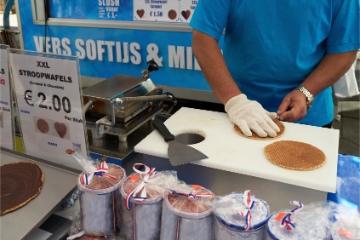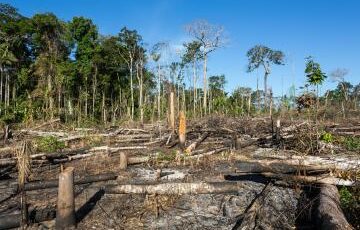
The Netherlands Food and Consumer Product Safety Authority (NVWA) enforces food safety and consumer product regulations through unannounced inspections, administrative actions, and criminal proceedings. They categorize violations into four classes, with Class B infractions potentially leading to immediate corrective measures. NVWA inspectors assess hygiene practices, food handling, and product safety during visits. Sanctions range from warnings to business closures, with fines varying based on violation severity and business size. The authority faces challenges like high inspection volumes, complex supply chains, and evolving technologies. You’ll discover how the NVWA’s thorough approach guarantees the safety of Dutch consumers and products. Our Dutch NVWA attorney Martin Krüger explains the most important aspects.
Key Takeaways
- The Netherlands Food and Consumer Product Safety Authority conducts unannounced inspections of food businesses to ensure compliance with safety regulations.
- Violations are categorized into four classes, with Class B potentially leading to immediate corrective measures.
- Sanctions range from warnings to business closures, with fines varying based on violation severity and business size.
- The Netherlands Food and Consumer Product Safety Authority can impose administrative enforcement tools, including penalty orders and license suspensions.
- Challenges include high inspection volume, complex supply chains, and potential legal challenges to enforcement actions.
Dutch NVWA’s Enforcement Powers
The NVWA wields significant enforcement powers to guarantee food safety and consumer product regulations are followed. This authority conducts unannounced inspections of food businesses, including restaurants and food processors. During these inspections, they’re authorized to take both administrative and criminal action if they discover violations of food regulations, hospitality rules, or the Commodities Act.
You should be aware that a routine inspection can escalate into a criminal investigation if the inspector finds serious breaches. The Netherlands Food and Consumer Product Safety Authority categorizes violations into four classes, from A (complex fraud) to D (minor infractions). For Class B violations, which pose a risk to human, animal, or environmental health, the NVWA can impose immediate corrective measures and apply administrative enforcement tools like administrative coercion, penalty payments, or fines.
If you’re facing NVWA enforcement, you have the right to appeal. You can challenge decisions like penalty payments, administrative coercion, or fines through objection and appeal procedures. Additionally, you can request a preliminary injunction from an administrative judge to suspend the fine or enforcement measure while your case is being reviewed.
Inspection and Monitoring Processes of The Netherlands Food and Consumer Product Safety Authority
Throughout the year, NVWA inspectors conduct unannounced visits to food businesses across the Netherlands. These inspections aim to guarantee compliance with food safety regulations and the Commodities Act. During these visits, inspectors assess various aspects of your business operations, including hygiene practices, food handling procedures, and product safety.
If you’re a food business owner, you can expect the NVWA to examine your premises, equipment, and documentation. They’ll check your adherence to your industry’s hygiene code and verify that you’re following proper food safety protocols. Inspectors may take samples of your products for further analysis or request to see your HACCP (Hazard Analysis and Critical Control Points) plan.
The NVWA categorizes violations into four classes: A, B, C, and D. Class A involves complex food fraud, while Class B represents serious violations that pose health risks. Class C indicates potential risks, and Class D covers minor infractions. Depending on the severity of any violations found, the NVWA may issue warnings, impose fines, or initiate legal proceedings. They’ll also schedule follow-up inspections to guarantee you’ve addressed any identified issues.
Sanctions and Penalties given by The Netherlands Food and Consumer Product Safety Authority
Following inspections, the NVWA can impose various sanctions and penalties on businesses that violate food safety regulations or the Commodities Act. These range from warnings to fines and even closure of establishments. The severity of the sanction depends on the nature and gravity of the violation, as well as the size of the business and any history of previous infractions.
For minor violations (Class D), the NVWA may issue a written warning and record it in the company’s file. More serious breaches (Class C and B) can result in administrative fines, which can range from €525 to €2,100 per violation. Larger businesses with over 50 employees face double fines, and repeat offenders may see increases of 25-50%.
The NVWA has several administrative enforcement tools at its disposal:
- Imposing a penalty payment order
- Issuing an administrative enforcement order
- Closing down a business temporarily or permanently
- Suspending or revoking licenses and permits
If you disagree with the NVWA’s decision, you can file an objection and appeal. In urgent cases, you may also request a preliminary injunction from the administrative court to suspend the enforcement action.
Challenges in Enforcement of product safety regulations in the Netherlands
Enforcing product safety regulations in the Netherlands faces several hurdles, despite the NVWA’s best efforts. You’ll find that one major challenge is the sheer volume of products and businesses to monitor. With limited resources, it’s difficult for the NVWA to inspect every establishment regularly.
Another issue you’ll encounter is the complexity of modern supply chains. Products often pass through multiple countries before reaching Dutch consumers, making it harder to trace origins and guarantee compliance at every step. You’ll also notice that rapidly evolving technologies and new product categories can outpace existing regulations, creating gaps in enforcement.
Language barriers and cultural differences can complicate inspections, especially with international businesses operating in the Netherlands. You’ll see that some companies may struggle to understand or implement Dutch regulations fully.
Lastly, you’ll find that legal challenges to enforcement actions can delay or hinder the NVWA’s efforts. Businesses may contest fines or closure orders, tying up resources in lengthy court proceedings. This can slow down the overall enforcement process and potentially allow non-compliant practices to continue during appeals.
Conclusion
You can’t afford to ignore the NVWA’s enforcement powers. They’re watching, and they won’t hesitate to act if you’re not compliant. Stay ahead of the game by understanding their inspection processes and potential sanctions. It’s not just about avoiding penalties; it’s about protecting your business and customers. Don’t wait for a surprise visit – take action now. Prioritize safety, stay informed, and keep your operations in line with NVWA standards.
Dutch law firm specialized in enforcement matters by The Netherlands Food and Consumer Product Safety Authority
For any legal inquiries or support in the Netherlands regarding enforcement by the Netherlands Food and Consumer Product Safety Authority (NVWA), please feel free to contact our adept team at MAAK Advocaten.






